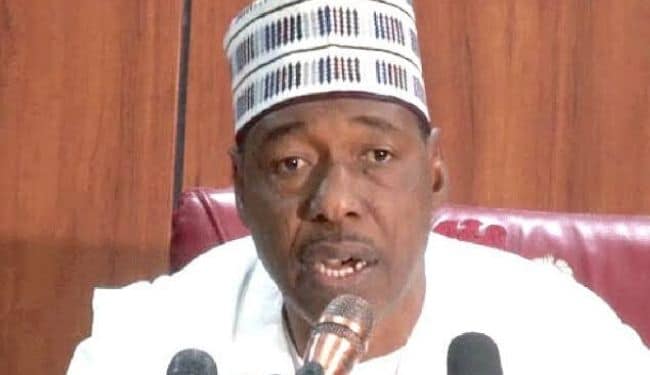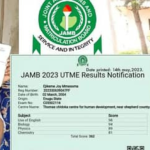Borno State Governor, Professor Babagana Zulum, has been consulting with Christian and Muslim leaders on the way forward, ahead of Wednesday’s expiration of the three weeks Covid-19 lockdown.
Some sources say the State Government may not be inclined to extending the lockdown any further.
At the two separate meetings held with the religious leaders, the Governor reportedly discussed his administration’s Covid-19 pandemic response, as well as sought suggestions that can guarantee the support of the religious leaders.
The meeting was also said to have discussed the mobilisation of the residents through religious preachings and other influences to strictly adhere to the preventive measures that will allow for the possibility of reopening the economy of the State.
Governor Zulum had on Wednesday last week extended the initial two weeks lockdown by one more week, to check the spread of Covid-19.
A statement by the Governor’s spokesperson, Isa Gusau, indicated that Governor Zulum is concerned that a significant percentage of the population in the state earns their livelihood on daily basis, through petty trading activities.
A good number of the population are also farmers, who need to start clearing their farmlands, as the rainy season begins to set in.
The Chief Imam of Maiduguri, Zannah Laisu, and the CAN Chairman, Bishop Mohammed Naga, expressed appreciation to Governor Zulum for considering religious leaders in the government’s decision-making process.
Also Read: Akwa Ibom State Govt bans selling of meat
Borno State currently ranks fifth amongst states with high number of Covid-19 infections in Nigeria, since its index case on April 19.
As at Monday, May 11, the Nigeria Centre for Disease Control, NCDC, had confirmed 186 Coronavirus cases in the state with 16 deaths and 18 discharged patients.
Despite the figures, Borno ranks high among other states with near-zero adherence to the social distancing order.
The State Deputy Governor, Umar Kadafur, who doubles as Chairman of the State COVID-19 Prevention Committee, said last week that, the residents’ negative attitude to social distancing and other safety measures, reminds him of “how Boko Haram started”.
(Editor: Terverr Tyav)






